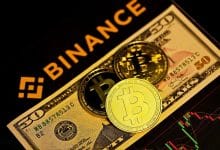Binance CEO admits to money laundering, fined over US$4 billion

Changpeng Zhao, the chief executive of Binance, allegedly admitted to money laundering violations in a US court yesterday. The confession will result in the cryptocurrency exchange he founded paying more than US$4 billion in fines. Attorney General Merrick Garland said Binance’s success as the world’s leading cryptocurrency exchange was partially due to its criminal activities.
The Department of Justice (DoJ) stated that Binance’s plea agreement was part of a joint effort that also involved the Treasury Department’s Financial Crimes Enforcement Network and Office of Foreign Assets Control (OFAC). Zhao, a Canadian resident living abroad, admitted to neglecting to maintain an effective anti-money laundering programme and has since resigned as CEO. As part of the plea, he agreed to pay a fine of US$50 million.
Binance’s settlement with the Treasury Department’s agencies includes a civil money penalty of US$3.4 billion and an OFAC penalty of US$968 million, the largest in the agencies’ history. Treasury Secretary Janet Yellen criticised Binance for ignoring its legal responsibilities in its pursuit of profit, resulting in the platform being utilised by terrorists, cybercriminals and child abusers.
The company also knowingly weakened its own sanctions monitoring controls, leading to over 1.5 million virtual currency trades that violated US sanctions, and failed to report suspicious transactions.
The Treasury revealed that Binance’s infractions included not preventing and reporting transactions with groups such as ISIS and matching trades between US users and those in sanctioned jurisdictions like Iran and North Korea. Going forward, Binance is required by law to file suspicious activity reports and review past transactions for such activity.
This will aid in criminal investigations into cybercrime and terrorism fundraising, including the use of cryptocurrency exchanges to support groups like Hamas.
Binance’s turbulent evolution
Binance, which was established in 2017, quickly dominated much of the cryptocurrency trading market, making Zhao a billionaire. Despite operating crypto exchanges and providing other services globally, Binance has suffered significant damage since the collapse of the crypto markets and regulatory scrutiny of its business legality. As part of the agreement, Zhao is currently prohibited from participating in Binance’s operations.
In a statement, Binance admitted making misguided decisions during its rapid growth in a nascent regulatory environment. The company acknowledged its lack of adequate compliance controls and has been working on restructuring. Richard Teng, the former global head of regional markets, has been appointed to replace Zhao as CEO.
The deal does not include the company’s disputes with the Securities and Exchange Commission (SEC), which levelled several charges against Binance in June for allowing US residents to trade without registering as a securities exchange in the country. The SEC also accuses the firm of misusing customer funds, reported Bangkok Post.
After China cracked down on the crypto sector, Zhao moved Binance’s operations to various international locations. The volatile industry experienced a surge in 2021, with a variety of complex products and celebrity endorsements boosting its valuation to over US$3 trillion. However, a series of scandals, including the collapse of the FTX exchange and criminal charges against its executives, led to a decrease in public trust and investors withdrawing their funds.
Latest Thailand News
Follow The Thaiger on Google News:


























